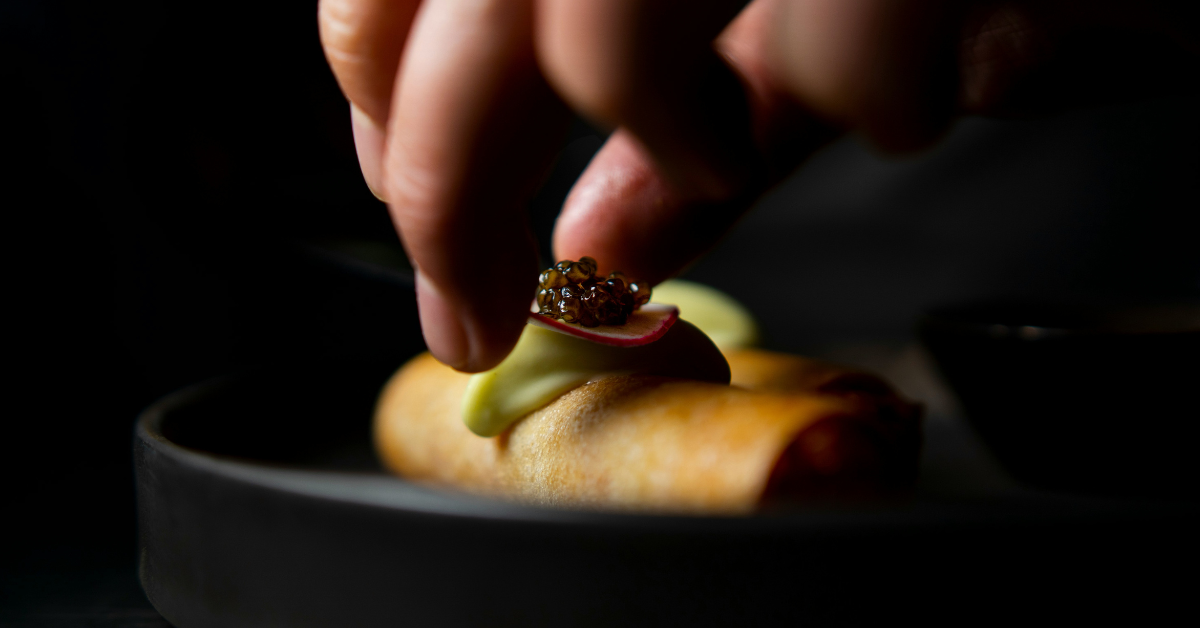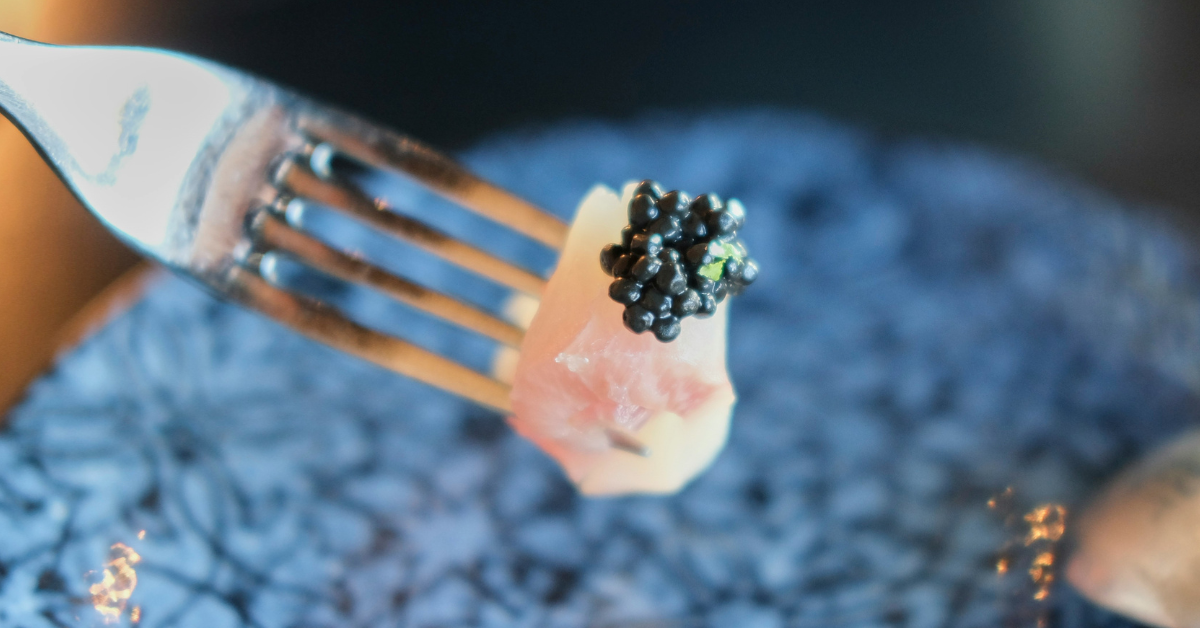Fact Check: Is Caviar Vegetarian?
Caviar may be considered a delicacy for some, but for vegetarians it's a huge no-no.
Published May 21 2025, 8:47 a.m. ET

Caviar is the name for a type of fish egg — also known as roe — that is harvested from the sturgeon fish, cured or salted, and then canned for diners looking for a unique treat. The food is often thought of as a high-end item that can be enjoyed alone or alongside champagne or fancy chocolates.
However, the reality is that caviar is sold in most grocery stores, and it comes at a variety of price points making it accessible for just about anyone to try.
But, vegetarians may not be lumped into the category of "just about anyone," since many of them refuse to eat the fish eggs on principal and don't believe it fits into a vegetarian lifestyle.
Why isn't caviar vegetarian? To understand that you'll need to keep reading to learn about exactly how the fish eggs are harvested, and what happens to the fish afterwards.

Why isn't caviar vegetarian?
While some vegetarians — known as lacto-ovo vegetarians — will consume chicken eggs, since they don't consider unfertilized eggs meat, the same can't be said of these fish eggs. That's because the process of harvesting caviar differs greatly from the process of obtaining chicken eggs, as chickens aren't culled during the harvesting of their eggs.
The same can't be said of caviar, though.
According to Chowhound, to retrieve the eggs used in caviar, people must pull sturgeon fish from the water and then cut them open so that farmers can access their eggs. The sturgeon die as a result of this process.
Next, the eggs are either cured or salted before being packaged and sent to retailers where they are sold. People can find caviar on shelves in the store, or even served alongside other dishes in restaurants.

Is caviar inhumane?
Obviously, when you consider the fact that the fish die during harvesting, it seems like the process of harvesting the food is quite inhumane. And while many animal rights activists agree with this statement, those at the World Wildlife Fund (WWF) take it a bit further and say that caviar harvesting is causing irreparable harm to the whole sturgeon population.
The WWF says that overfishing and a loss of habitat has caused sturgeon to become "the most endangered species group on Earth."
However, the WWF has good news about sturgeon, and the organization says it is not too late to make a difference. According to them, the fish can be brought back from near extinction, and we can save the rivers and waterways they call home in the process.
To do this, the WWF has begun working with groups around the world to ensure that their populations are rebuilt, and that illegal caviar operations are held accountable, so that the fish can once again thrive.
The WWF has partnered with another organization to combat the caviar trade within the black market, advocating for the fish and their rights over those of the poachers killing them off for their eggs.
Additionally, the WWF is working with communities to ensure that the rivers the sturgeon flock to when it comes time to breed are kept free of the pollutants and physical barriers that have been hampering their continued survival.